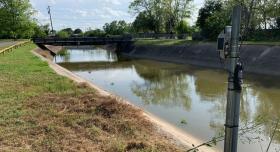The Equitable and Regenerative Cities Flagship seeks to build a roadmap to vibrant urban futures. Migration to urban centers across Texas continues at a breakneck pace, placing immense strain on systems such as water, housing, transportation, and energy while exacerbating inequality. We see a direct line between equitable cities, where everyone has fair access to infrastructure, services, and jobs they need to prosper, and regenerative cities. Regenerative cities are places where we diversify our economies, reduce waste, prevent toxicity, and rebuild natural systems by keeping products and materials in use longer. Equity and regeneration are key to reimagined cities for the future; we see respect for humans and the rest of nature as the foundation for our built environment and economy. Our job is to work together to co-design this future — as a group of residents, community organizations, and researchers—by weaving these two ideas into our blueprint for Texas’ future. The connections, data, and relationships that we build can be used by other communities as they chart a new pathway forward.
Central Research Questions:
What are more equitable and resource-efficient metropolitan solutions that safeguard urban living resources (e.g., food, fiber, energy, materials, and water) that people and the planet depend on? How can a circular approach to development reduce waste and natural resource depletion while supporting and regenerating socio ecological systems (humans and ecosystems both)? How does public participation and power support this vision?
What problem(s) is this project attempting to solve?
Rapid urbanization and increasing impacts from climate change place immense strain on our natural resources and infrastructural systems. Top-down city planning has at times been inequitable and ineffective, while standard development practices can lead to pollution and waste.
Anticipated Outcomes and Impacts
• More effective & innovative community-based research
• Stronger connections with community partners (CoA, ILA- RH bottom-up outreach; SETx communities)
• Generation of equitable climate-resilient infrastructure solutions that are context appropriate
• Development of more equitable and climate-resilient infrastructure systems
Geographic Areas of Interest: Austin area, Southeast Texas, Gulf Coast
Partners: City of Austin, Community Coalition for Health, Community Fellows, Go Austin/Vamos Austin, Texas Target Communities, Microsoft, TAMU, Creative Policy


